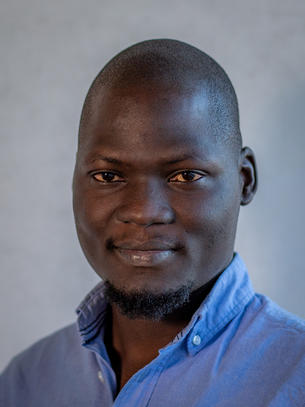Daniel Abiriga from USN’s PhD program in Ecology will defend his thesis for the degree of PhD «The microbiology and geochemistry of a landfill-contaminated aquifer».

Trial lecture topic: «How does landfill leachate affect the geochemistry of landfill-contaminated aquifers?».
The trial lecture and the defence will be held on October 20 at campus Bø in auditorium 4-311A and on Zoom from 1100 to 1500.
Summery
The microbiology and geochemistry of an aquifer was investigated to examine the effects of a municipal landfill on the groundwater ecology. The study found that the operation of the landfill affected both the groundwater quality and microbial species composition, as a clear difference was observed between polluted and unpolluted groundwater samples. Similarity in groundwater quality and microbial communities was greatest between samples closest to the landfill and decreased with an increasing distance from the landfill.
The groundwater quality and microbial communities were found to vary seasonally and between monitoring years, but the seasonal effect was more important than the inter-year variation, although both the seasonal and yearly variations were less important than distance. It was also found that the groundwater quality greatly influenced the microbial compositions. Also, both the groundwater and the aquifer sediment were found to harbour distinct microbial communities. The natural attenuation of the contaminated groundwater was found to be substantial and prevented ecosystem degradation due to the landfill leachate.
The findings have significant consequences for design, implementation and management of groundwater monitoring programmes for various types of anthropogenic disturbances. Groundwater is the main source of potable water for drinking, agriculture and industries, but faces global contamination challenges from a range of anthropogenic activities such as landfill. This affects the quality of groundwater, and in addition, poses threat to the rich biodiversity in groundwater ecosystems.
Despite numerous studies have investigated landfill-contaminated aquifers, they represent narrow geographical distributions and are generally few compared to the numbers of landfills all over the world. Moreover, the temporal and seasonal dynamics remain underexplored. Future studies should give special consideration to seasonal, temporal, and vertical and horizontal spatial coverage of sampling.